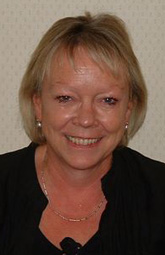Christine Simm
Christine Simm is a tutor in Social Work at Ruskin College in Oxford. Her particular interest is in Practice Learning and she has extensive experience in teaching and assessing students on social work placements, particularly in the voluntary and community sector. Prior to her current position, Christine has worked as a social worker in a number of voluntary sector agencies, including managing a family centre for ten years. Christine’s other interest is adult education, particularly working with adults who are returning to education.
Knowledge for change: social work students as creators of knowledge
The project involves students in their second and third years of the BA (Social Work) . It aims to link with and enhance students’ learning in the Research and Social Work module taught in Term 3 of Year 2, and particularly to the topic ‘Carrying out small scale research’.
. It aims to link with and enhance students’ learning in the Research and Social Work module taught in Term 3 of Year 2, and particularly to the topic ‘Carrying out small scale research’.
The primary objective of the project is to contribute to students’ appreciation of research methods, the contestability of ‘knowledge’, the current debates about evidence based practice and their understanding of themselves as creators of knowledge.
Teaching for the Research and Social Work module occurs in tandem with the process of matching students to placements for their second period of practice learning. The Ruskin Social Work programme has a history of working with small voluntary and community organisations that provide practice placements to students training to be social workers. Many of these organisations also provide practice placements for the Ruskin College Foundation Degree in Youth and Community Work.
Teaching in the Research and Social Work module will be based on general principles of adult learning (Rogers, 1989) and learning related to the workplace (Barnett, 1999). It will particularly focus on exploring the relationship between theory/knowledge and social work practice (Green, 2000).
Cheetham’s (2000) understanding of research in social work as an ‘essential and highly practical means of understanding the context of social work and social care, the problems with which care professionals are involved and effective means of help’ (p.75) will provide the basis for a critical examination of the purposes, methodologies, methods and uses of research in social work. This will include an analytic and reflective approach to existing research studies and their claims to knowledge. This should inform the students’ own practice in carrying out research.
The overall research question of this project is: ‘ to what extent can student social workers/practitioners contribute to the creation of knowledge of value to people who use social work and social care services and practitioners providing these services?’ A secondary question is: ‘what teaching and learning supports students in becoming creators of knowledge?’
The students’ research questions will evolve through their engagement and discussion with the agency in which they are placed.
The research would be carried out, written up and evaluated as part of the student’s work-based learning at the placement agency. As such, the students would be required to link their research work to the National Occupational Standards (NOS) for Social Work, the Values and Ethics of Social Work, the GSCC Codes of Practice and the Statement of Expectations from people who use services.

